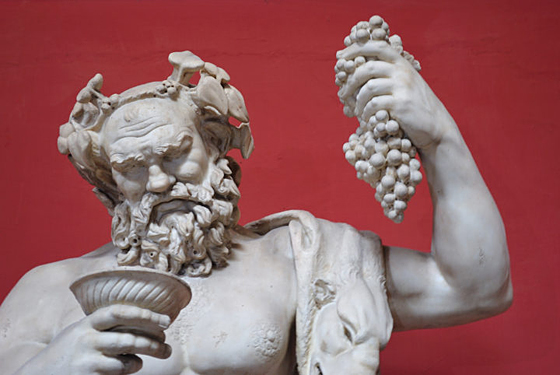
When Alex Comfort’s book The Joy of Sex was released in 1972, America was in the throes of the sexual revolution, eager to throw off the remnants of Victorian boundaries and embrace ecstasy. Psychedelics, orgies, Be-ins and gatherings like Woodstock in 1969 had set the stage for expressions of unbridled pleasure and passion, but ultimately were accompanied by the grisly murders by the Manson Family and overt violence at the Rolling Stone’s Altamont concert. In other words, the full spectrum of human passion and ecstasy was revealed, from the sacred to the profane. So too have the recent events at our national Capitol, where a massive gathering displayed a combination of fun-seeking exuberance and homicidal violence.
As I noted in my previous essay discussing events in light of Elias Canetti’s book Crowds and Power, what happened in Washington was in line with his predictions about crowd behavior and destruction. What I did not explore, however, is how events reflect an age-old characteristic of people, namely the Joy of Chaos.
The ancient Greeks fully appreciated the power of our joy of chaos, and even devoted such activity to the realm of a god, Dionysus. Dionysus is conventionally associated with wine, and in visual representations including grapes often appears on wine bottle labels like a jolly, partying uncle. This, of course, is a simplistic reduction of the role of chaos and ecstasy in human culture, meant to sell alcohol and nothing more. The full picture is more complex.
Dionysus represents the psychological role of chaos and ecstasy, states of consciousness when boundaries of order dissolve and human passion is given full reign. The mythology extends to the followers of Dionysus, the Meanads, who intoxicated with freedom at ceremonial rites accompanied by alcohol, psychoactive mushrooms, dancing and orgies, would ecstatically run into the woods and tear apart children in fits of uncontrolled violence.
Such ecstatic states were not considered profane, but sacred. And the connection between the sacred and the profane is at the heart of what happened at our Capitol. Commentary about the riot includes references to the invasion of a “sacred” space, and for some of the rioters, breaking sacred taboo was exactly the point, as Canetti notes in his book. For others, however, the riot was fun, an exciting gathering more like Woodstock than an insurrection.
The evidence is in the visual record, photos of costumed people grinning, unashamed with pure pleasure as they coursed through the building holding up looted booty, like the House Speaker’s podium. Caught up in the ecstasy of the event, such people are plainly intoxicated with the power that comes by breaking sacred taboos. Another, a young woman from Florida, complained tearfully to a reporter that she had been “maced.” “They maced me,” she blubbered, shocked at her treatment. “It’s a revolution!” she exclaimed. For all the chaos, she might as well have been overwhelmed by a roller-coaster ride at Disneyland.
Of course, this was not Disneyland; people died and many were threatened. It could have been a bloodbath, and in this sense letting the crowd have its way as it did probably saved many lives. But my point is this: society forces conformance to laws that inhibit human behavior and run counter to human emotion. We find outlets for emotion and chaos by watching two boxers beat the shit out of each other, but intoxicated by the ecstasy of the crowd and plenty of beer, some revert to their Dionysian selves. Remembering this will not prevent it from happening again, but might help us better prepare to cope with the reality of who we are.
Hi Larry:
Always fun to read.
Speaking of chaos. You have grandchildren, right? hahaha!
D2
Well done Larry. Thanks for an opinion I’ve not read anywhere else.
When I got to the end of this article I was disappointed–not in what you wrote, but
I wanted more. You had engaged me with your thoughts and the connection to both mythology and history–specifically the excesses of the 60s and early 70s, the years of our youth. Well done and worth further exploration.